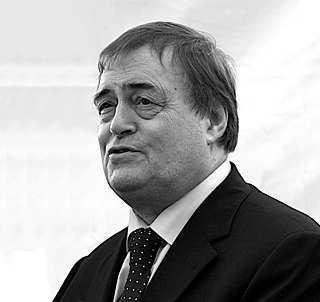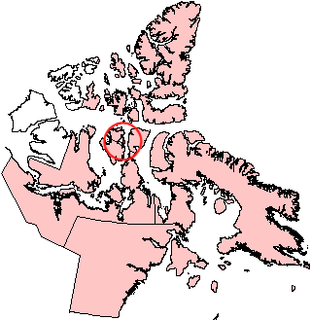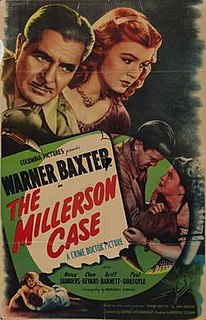Related Research Articles

Prescott is a city in Yavapai County, Arizona, United States. According to the 2020 Census, the city's population was 45,827. The city is the county seat of Yavapai County. In 1864, Prescott was designated as the capital of the Arizona Territory, replacing the temporary capital of Fort Whipple. The Territorial Capital was moved to Tucson in 1867. Prescott again became the Territorial Capital in 1877, until Phoenix became the capital in 1889.

William Hickling Prescott was an American historian and Hispanist, who is widely recognized by historiographers to have been the first American scientific historian. Despite suffering from serious visual impairment, which at times prevented him from reading or writing for himself, Prescott became one of the most eminent historians of 19th century America. He is also noted for his eidetic memory.

The Battle of Bunker Hill was fought on Saturday June 17, 1775 during the Siege of Boston in the first stage of the American Revolutionary War. The battle is named after Bunker Hill in Charlestown, Massachusetts, which was peripherally involved in the battle. It was the original objective of both the colonial and British troops, though the majority of combat took place on the adjacent hill which later became known as Breed's Hill.

Prescott Sheldon Bush was an American banker and politician.After working as a Wall Street executive investment banker, he represented Connecticut in the United States Senate from 1952 to 1963.A member of the Bush family, he was the father of former Vice President and President George H. W. Bush, and the paternal grandfather of former Texas Governor and President George W. Bush and former Florida Governor Jeb Bush.

John Leslie Prescott, Baron Prescott is a British politician who served as Deputy Prime Minister of the United Kingdom from 1997 to 2007 and as First Secretary of State from 2001 to 2007. A member of the Labour Party, he was Member of Parliament (MP) for Kingston upon Hull East from 1970 to 2010. He was seen as the political link to the working class in a Labour Party increasingly led by modernising, middle-class professionals such as Tony Blair and Peter Mandelson and developed a reputation as a key conciliator in the often stormy relationship between Blair and Gordon Brown.

General Robert Prescott was a British military officer and colonial administrator. During a military career which spanned over fifty years, he participated in the Seven Years' War, the French and Indian War, and the American Revolutionary War, including key engagements such as the Montreal Campaign. He later became the Governor of Martinique and then, in 1796, Governor General of The Canadas, and the British Army's Commander-in-Chief for North America. He was recalled to England in 1799 after conflict with the Catholic Church and disputes with Anglo-Canadian colonial elites over the distribution of land in the colonies. He continued to hold his position until 1807, with his lieutenant governors acting in his absence. He died in 1815 after unsuccessful attempts to clear his name.
The Hodrick–Prescott filter is a mathematical tool used in macroeconomics, especially in real business cycle theory, to remove the cyclical component of a time series from raw data. It is used to obtain a smoothed-curve representation of a time series, one that is more sensitive to long-term than to short-term fluctuations. The adjustment of the sensitivity of the trend to short-term fluctuations is achieved by modifying a multiplier . The filter was popularized in the field of economics in the 1990s by economists Robert J. Hodrick and Nobel Memorial Prize winner Edward C. Prescott. However, it was first proposed much earlier by E. T. Whittaker in 1923.
HP filter has several meanings:

Edward Christian Prescott is an American economist. He received the Nobel Memorial Prize in Economics in 2004, sharing the award with Finn E. Kydland, "for their contributions to dynamic macroeconomics: the time consistency of economic policy and the driving forces behind business cycles". This research was primarily conducted while both Kydland and Prescott were affiliated with the Graduate School of Industrial Administration at Carnegie Mellon University. According to the IDEAS/RePEc rankings, he was the 19th most widely cited economist in the world in 2013. In August 2014, Prescott was appointed as an Adjunct Distinguished Economic Professor at the Australian National University (ANU) in Canberra, Australia.

Prescott Island is one of the uninhabited Canadian Arctic islands in the territory of Nunavut. The island is situated in Peel Sound, between the Prince of Wales Island and Somerset Island.
Economic stability is the absence of excessive fluctuations in the macroeconomy. An economy with fairly constant output growth and low and stable inflation would be considered economically stable. An economy with frequent large recessions, a pronounced business cycle, very high or variable inflation, or frequent financial crises would be considered economically unstable.
Peter Sherwin Prescott was an American author and book critic. He was the senior book reviewer at Newsweek for more than two decades.
Rajnish Mehra is an Indian American financial economist. He currently holds the E.N. Basha Arizona Heritage Endowed Chair at the Arizona State University and is a Professor of Economics Emeritus at the University of California, Santa Barbara.
The Economists' statement opposing the Bush tax cuts was a statement signed by roughly 450 economists, including ten of the twenty-four American Nobel Prize laureates alive at the time, in February 2003 who urged the U.S. President George W. Bush not to enact the 2003 tax cuts; seeking and sought to gather public support for the position. The statement was printed as a full-page ad in The New York Times and released to the public through the Economic Policy Institute. According to the statement, the 450 plus economists who signed the statement believe that the 2003 Bush tax cuts will increase inequality and the budget deficit, decreasing the ability of the U.S. government to fund essential services, while failing to produce economic growth.
Conrad Emanuel Victor Leser (1915-1998) was a German Econometrician.

Harald Friedrich Hans Volker Sigmar Uhlig is a German macroeconomist and the Bruce Allen and Barbara Ritzenthaler Professor of Economics at the University of Chicago, where he was the chairman of the Department of Economics from 2009 to 2012.

The Kuznets swing is a claimed medium-range economic wave with a period of 15–25 years identified in 1930 by Simon Kuznets. Kuznets connected these waves with demographic processes, in particular with immigrant inflows/outflows and the changes in construction intensity that they caused, that is why he denoted them as "demographic" or "building" cycles/swings. Kuznets swings have been also interpreted as infrastructural investment cycles.

Real business-cycle theory is a class of new classical macroeconomics models in which business-cycle fluctuations are accounted for by real shocks. Unlike other leading theories of the business cycle, RBC theory sees business cycle fluctuations as the efficient response to exogenous changes in the real economic environment. That is, the level of national output necessarily maximizes expected utility, and governments should therefore concentrate on long-run structural policy changes and not intervene through discretionary fiscal or monetary policy designed to actively smooth out economic short-term fluctuations.

The Millerson Case is a 1947 drama directed by George Archainbaud, starring Warner Baxter, Nancy Saunders and Clem Bevans. In the 8th film of Columbia's Crime Doctor series, Dr. Robert Ordway is vacationing in the Blue Ridge Mountains district of West Virginia when a Typhoid fever epidemic breaks out. Three deaths occur, with the first two being typhoid-caused. The death of the third person is from poisoning.
Reed Birney is an American actor. He has worked both on Broadway and Off-Broadway.